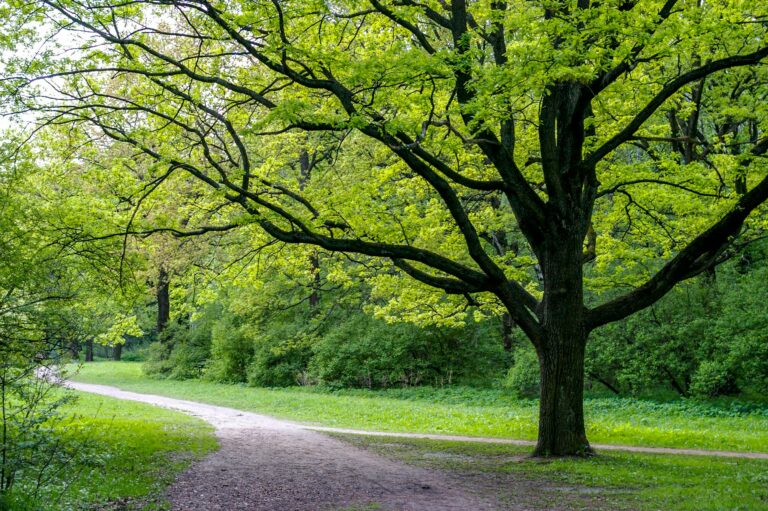Sustainable Tree Care: Eco-Friendly Practices for a Greener Landscape
Creating a beautiful and healthy landscape in Rock Hill, South Carolina, is about more than simply tending to the trees and plants that grace your outdoor spaces. Embracing sustainable tree care practices can help you ensure that your landscape not only thrives but also supports local ecosystems and contributes to a healthier environment. This eco-conscious approach to tree care considers not only the immediate aesthetics of your landscape but also the long-term benefits to both your property and the surrounding community.
In this article, we’ll discuss sustainable tree care principles and techniques that can help you create a greener, more environmentally responsible landscape. We will discuss topics such as choosing native and well-adapted tree species, implementing organic and eco-friendly pest management strategies, promoting biodiversity and habitat creation, conserving water and resources, and engaging in responsible tree maintenance.
By adopting these sustainable practices, you can nurture a healthier and more robust landscape that benefits local ecosystems, supports natural wildlife habitats, and enhances the beauty and value of your property. Let us guide you through these essential principles and techniques to help you adopt a sustainable tree care approach that fosters a greener, more vibrant outdoor ecosystem in your Rock Hill, South Carolina property.
1. Selecting Native and Well-Adapted Tree Species
One of the cornerstones of sustainable tree care is choosing native and well-adapted tree species for your Rock Hill landscape. Native trees are those that are naturally found in your local area and are well-suited to thrive in specific climate, soil, and environmental conditions.
These species generally require less maintenance, are more resistant to local pests and diseases, and offer critical habitat support for native birds, insects, and other wildlife. Well-adapted trees, on the other hand, might not be native but can still grow successfully in your local conditions without causing environmental concerns.
By selecting native and well-adapted tree species, you are promoting a greener, more sustainable landscape that is in harmony with the local ecosystem.
2. Organic and Eco-Friendly Pest Management
Insects and diseases are inevitable challenges in any tree care strategy. Sustainable tree care practices emphasize the use of organic and eco-friendly pest management methods that minimize harm to the environment and the natural balance of your landscape’s ecosystem.
Encourage natural predators, such as birds and beneficial insects, to keep pest populations in check. Providing nest boxes, birdbaths, and sources of food can attract these helpful species to your property.
Chemical treatments should be considered as a last resort and only after thorough research and consultation with a tree care professional. Opt for products that have minimal environmental impact and are specifically formulated to target only the pests afflicting your trees, avoiding broad-spectrum insecticides that could harm beneficial insects or negatively impact the surrounding ecosystem.
3. Promoting Biodiversity and Habitat Creation
A diverse landscape filled with a variety of tree species, along with understory plants such as shrubs and perennials, can help promote a healthier ecosystem and more resilient greenery. Biodiverse landscapes provide habitat and food sources for various wildlife species and can better withstand threats from pests or diseases than monoculture plantings.
To create a rich and sustainable habitat, consider incorporating bird-friendly trees that bear fruits or nuts, flowering trees that provide pollen and nectar for pollinators, and evergreens that offer shelter for birds and small mammals year-round.
Incorporating native plants into your landscape not only benefits the local ecosystem but also has the practical advantage of being well-suited to the regional climate and soil conditions. Consult with a professional arborist to create a well-balanced and diverse landscape plan that promotes biodiversity and habitat creation.
4. Conserving Water and Resources
Sustainable tree care practices emphasize the importance of minimizing water and resource consumption while still providing the essential care your trees need. Adopt water-wise landscaping techniques like using mulch around the base of your trees to conserve soil moisture and reduce water evaporation.
Only water your trees when necessary, and preferably during the cooler hours of the early morning or late evening to minimize water loss due to evaporation. Installing efficient irrigation systems such as drip irrigation or soaker hoses can also help conserve water while still delivering the necessary moisture to your trees’ root systems.
Collect rainwater and consider using greywater from your household (ensuring it’s safe for your plants) to water your landscape, further reducing your property’s water consumption and environmental impact.
5. Responsible Tree Maintenance and Pruning
Sustainable tree care involves responsible tree maintenance and pruning practices that promote tree health, minimize waste, and reduce the potential for future issues. Regularly inspect your trees for signs of damage, disease, or pest infestations and address any problems as soon as they arise.
When pruning, remove dead, diseased, or damaged branches and thoughtfully shape the tree to promote healthy growth, maintain structural integrity, and reduce the likelihood of storm damage. Proper tree maintenance can extend the life of your trees and contribute to a thriving, sustainable landscape.
Embrace Sustainable Tree Care for a Greener, Healthier Landscape
By incorporating these sustainable tree care principles and techniques into your Rock Hill, South Carolina landscape, you can create a healthier, greener outdoor space that benefits not only your property but also the local ecosystem and environment. As you embrace native tree species, organic pest management, biodiversity, water conservation, and responsible tree maintenance, you are contributing to the health of our planet and your local community. For expert guidance in adopting sustainable tree care practices, consult with the certified arborists at Niwaki Tree Services and discover how we can help you create a more eco-friendly and thriving landscape through our comprehensive local tree services.



